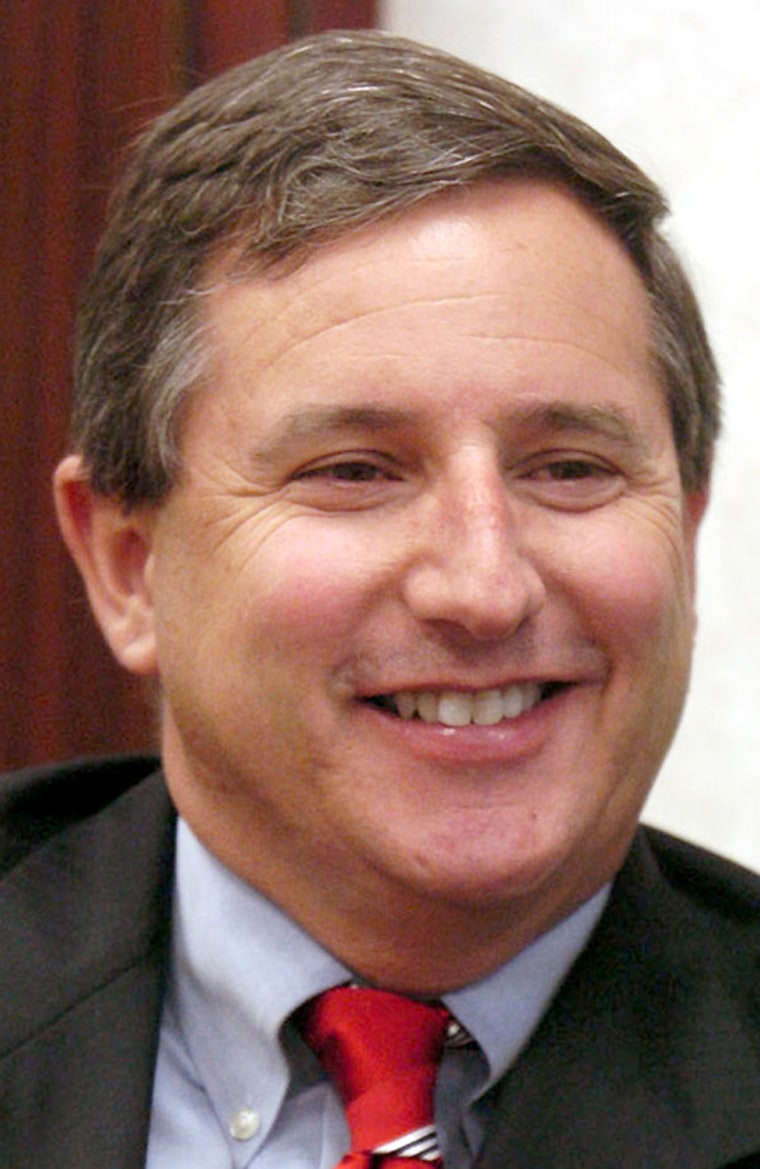Hewlett-Packard Co. named Mark Hurd, a low-key longtime NCR Corp. executive, on Tuesday to replace the ousted Carly Fiorina as president and CEO.
Hurd, 48, resigned Tuesday as president and chief executive of NCR and takes charge at HP on April 1. Hurd joined Dayton, Ohio-based NCR, a computer services company perhaps best known for its ATM machines, in 1980 and quietly spearheaded an ambitious turnaround when he became CEO in March 2003.
Hurd — the antithesis of the celebrity CEO — is a sharp contrast to Fiorina. She was one of the country’s most powerful female executives, a media-savvy marketing specialist who was fired for not slashing costs or boosting profit quickly after HP’s merger with Compaq Computer Corp. in 2002.
Hurd isn’t well known on Wall Street or in the financial media but enjoys a solid a reputation among business experts as a relentless cost-cutter familiar with nearly every facet of management.
HP director Patricia C. Dunn, who headed the executive search committee, said Hurd stood out because he successfully transformed NCR into a small but formidable consulting powerhouse.
Dunn said Hurd’s no-nonsense style appealed to the board. While Fiorina frequently wooed Wall Street investors and lunched with politicians in Washington, D.C., Hurd is likely to spend long hours on HP’s Palo Alto campus and at company offices worldwide.
“Mark is an operator and likes to roll up his sleeves and work with his team and his customers and spend time with employees,” Dunn said in a phone interview Tuesday afternoon. “To the extent he feels it’s appropriate to be visible, he will be — but he focuses on getting the job done.”
Business experts praised the decision and said Hurd’s appointment marks a break with the style and strategies of Fiorina, who was loathed by many HP employees as a management expert devoid of engineering expertise.
NCR, located far from Silicon Valley’s venture capitalists and technology power brokers, operates data warehouses that store countless bits of information from corporate customers. The company also sells “relationship management” software that helps companies keep track of customers and their orders.
Before he took the helm of NCR, Hurd was president and chief operating officer. In 1999, he led NCR’s lucrative Teradata warehouse division and before that he held jobs in marketing, professional services and sales.
“Mark is a complete, 180-degree turnabout from Carly, and very low-key,” said Jeffrey Alan Sonnenfeld, associate dean of the Yale School of Management. “I like that he’s not an opportunistic job hopper — he hasn’t been out shopping himself around.”
Hurd’s ability to clinch multimillion-dollar consulting contracts with large corporations could help HP do the same as it struggles against consulting powerhouse IBM Corp., experts said.
Born in New York City, Hurd attended Baylor University in Texas on a tennis scholarship and rose to be the No. 1 player on the team. He graduated with a business degree, and after an attempt at professional tennis joined NCR in 1980 selling computers in Texas.
Hurd significantly boosted NCR’s presence in China.
The company employs more than 1,000 workers there and has an ATM factory in Beijing. As head of NCR, he spent about half his working hours in Beijing or Europe.
When in Dayton, he could be seen in his office from about 8 a.m. until 7 p.m. He’d usually go home to eat dinner with his wife and two daughters, then put in two more hours of work before bed.
Despite his lack of recognition, Hurd has consistently won praise from NCR board members, who rewarded him with a generous compensation package for his relatively speedy reversal of NCR’s fortunes.
Since Hurd took over the 28,000-employee company, NCR’s net income has jumped to $285 million from $58 million in 2003.
In a letter to shareholders in NCR’s 2004 annual report, Hurd said the company has reduced costs $200 million since 2003, and he expected to cut another $150 million in the next two years.
Hurd’s total compensation jumped 33 percent last year to $2.02 million, according to a proxy statement filed last week with the Securities and Exchange Commission. Hurd received $899,423 in salary and $1.12 million in bonuses.
Since Hurd took the helm, NCR’s stock has climbed 332 percent — a stark contrast to HP’s flagging shares. Five years ago, HP shares traded at nearly $70 per share.
Even fans of Hurd’s management style said he’d have a tough job transforming HP, a 151,000-employee company that’s struggled to sell hardware as efficiently as low-cost rival Dell Inc.
“If anyone is qualified, he is,” said Peter Morici, a business professor at the University of Maryland. “The question is whether he’s taking over the equivalent of the Detroit Lions — an enterprise that’s so financially damaged and whose portfolio is so limited as to what the world wants that no one can do it. ... Increasingly, technology companies are becoming commoditized, so he’s going to have a hard time finding market niches that really add value.”
